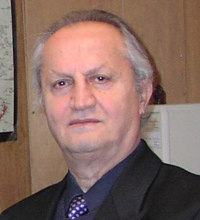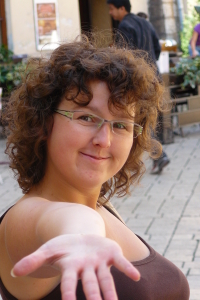Word count Thread poster: Sami Khamou
|
|---|
Sami Khamou 
Local time: 04:53
Member (2002)
English to Arabic
+ ...
I received a Word file for translation. The client stated that there are 10,000 words as calculated by Trados. When I looked up the word count in Word it was 32,000 words.
Asking the client for an explanation, he claimed that Trados does not count repetitive words and I should only be paid for non-repetitive words.
Is this a normal way of calculation or is there something wrong?
I'll appreciate any input.
| | | |
| There is something wrong | Jun 16, 2006 |
That's outrageous, the difference is too high, besides Trados does count repetitions. IMHO, your client is not being entirely honest. In the first place, did s/he said anything about repetitions? Some agencies pay less for fuzzy matches and repetitions, i.e. 100% Match/Repetitions, 1/3 of your regular rate. But that should be discussed BEFOREHAND and you still should charge your client for repetitions.
You could ask your client to send you the Trados Analysis but you should also... See more That's outrageous, the difference is too high, besides Trados does count repetitions. IMHO, your client is not being entirely honest. In the first place, did s/he said anything about repetitions? Some agencies pay less for fuzzy matches and repetitions, i.e. 100% Match/Repetitions, 1/3 of your regular rate. But that should be discussed BEFOREHAND and you still should charge your client for repetitions.
You could ask your client to send you the Trados Analysis but you should also run your own analysis, if you don't have Trados, you can download the demo version.
If you search the fora for 'fuzzy matches' and 'rates', you will find many useful discussions.
Good luck.
Edited: I forgot to mention that what you charge your client is up to you, not to them.
[Edited at 2006-06-16 05:53] ▲ Collapse
| | | |
| Wordcount and Trados | Jun 16, 2006 |
Hello Sami,
Trados actually counts all words, but it breaks down the wordount into different categories: 100% matches, fuzzy matches, repetitions and no matches. In order for you to know how many words belong to each category, you would need the Trados analysis. If you do have Trados, all you need to do is, in Workbench, to use the Analyse function under Tools. If the client supplied a translation memory that you can use with Workbench, you should run the Analysis with that memory o... See more Hello Sami,
Trados actually counts all words, but it breaks down the wordount into different categories: 100% matches, fuzzy matches, repetitions and no matches. In order for you to know how many words belong to each category, you would need the Trados analysis. If you do have Trados, all you need to do is, in Workbench, to use the Analyse function under Tools. If the client supplied a translation memory that you can use with Workbench, you should run the Analysis with that memory open. If you don't have Trados, you would have to ask the client for the analysis file, which will outline the number of words per match category.
If you do not use Trados, and the client agrees to have you perform the translation in Word simply, then the client should not ask for any rebates on the words. They should pay you the full rate for all words, regardless of what match category they fit into. This is because, when you don't use Trados, you have to translate a sentence every time you come across it, even if the very same sentence comes up 20 times (this would be 100% match). However, if you do use Trados, then you can offer to charge less for 100% matches, repetitions and fuzzy matches. I know that there are many different CAT tool rate schemes being used, but I personally would refrain from offering rebates on fuzzy matches, unless they are at least 85% matches. If a fuzzy match is of a lower percentage, most of the time, you would still have to rewrite the whole sentence, which would really come down to a no match. Also, if the client provides you with a memory and doesn't want to pay for 100% matches, then it should not be required of you to correct those segments, even if they contain errors. Simply put, if the client wants to not pay anything for certain match categories, then you should not be required to deal with them. If the client does not supply a memory, then they should not ask for a lower rate for 100% matches, as there will not be any 100% matches. As for repetitions, I usually give them away for free, but most of the time, that's the only rebate I give.
I usually ask for my regular rate on no matches, give the repetitions for free (as I will only translate the sentence itself once, and then every time it comes up again, Trados fills in the previous translation automatically, and I only have to validate it, without even reading it again). As for fuzzy matches, I only give them at a lower rate when the no matches are paid at a good rate, and then again, only when they are 85% or more. However, most of my clients pay full rate for everything and pay a quarter to a half of the regular rate for repetitions and 100% matches - and this is not even something I asked for, it was initially in their offer.
In any case, one thing you may want to meditate on is this: you invested a substantial amount of money into your copy of Trados, and most likely plenty of time to learn it. You probably didn't go through all that to be paid less. Fuzzy matches, repetitions and the like are primarily meant for YOU to be able to be more productive, to be able to offer a better quality translation and for better project management. The bottom line is, you invested in Trados for YOUR benefit, not the client's. They should be happy that you are able to offer faster, more efficient and more consistent translation by using Trados. In an ideal world - but I am just daydreaming here - you should charge them more just because you use Trados.
I hope this helps to sort out the question.
Good luck!
Oh, by the way, I just completed a job very similar in match distribution to yours: 35,000 words, of which 20,000 are repetitions. The client offered to pay full rate for everything except the repetitions - which he still paid at half price. I did not need to negociate - the client knows about best practices, and uses them.
[Edited at 2006-06-16 06:04] ▲ Collapse
| | | |
Samuel Murray 
Netherlands
Local time: 10:53
Member (2006)
English to Afrikaans
+ ...
| The client should have been more clear | Jun 16, 2006 |
Sami wrote:
Asking the client for an explanation, he claimed that Trados does not count repetitive words and I should only be paid for non-repetitive words.
There is nothing wrong with doing a word calculation with Trados, but then the client should have told you upfront that (a) he expects you to use CAT and (b) that he'll only pay you for the first instance of each repetition.
The "normal" way of paying for Trados work is to specify the total word count and the repetitive word count, and indicate which will be paid at what rate. It is not "normal" to receive no money whatsoever for repetitive texts, nor is it "normal" to provide the unique word count as if that would be the total word count.
If a new client want to pay me *nothing* for repetitions, then I'll accept the job on the condition that I don't do anything for which I don't get paid (and so I'll deliver a TM only).
That said, from 32 000 words down to 10 000 words indicates quite a dramatic repetition rate.
| | |
|
|
|
Sami Khamou 
Local time: 04:53
Member (2002)
English to Arabic
+ ...
TOPIC STARTER
Thank you Claudia, Viktoria and Samuel for your inputs.
The client is not supplying a memory file as the job is being done for the first time.
I did my own Trados analysis:
Repetitions: 708 words
Matches 100%-50%: 2,245 words
No match: 17,825 words
Total Words: 20,778
Count by MS Word is still: 32,000.
It looks like Trados has gobbled 11,000+ words to start with.
No match words alone (17,825) are almost tw... See more Thank you Claudia, Viktoria and Samuel for your inputs.
The client is not supplying a memory file as the job is being done for the first time.
I did my own Trados analysis:
Repetitions: 708 words
Matches 100%-50%: 2,245 words
No match: 17,825 words
Total Words: 20,778
Count by MS Word is still: 32,000.
It looks like Trados has gobbled 11,000+ words to start with.
No match words alone (17,825) are almost twice the word count claimed by the client (10,000).
I am also puzzled by the difference between the total word counts of Trados and MS Word.
Kind regards,
Sami
[Edited at 2006-06-16 13:07]
[Edited at 2006-06-16 13:09] ▲ Collapse
| | | |
Pat Jenner (X)
Local time: 09:53
German to English
+ ...
| Could it be figures? | Jun 16, 2006 |
I had a similar situation recently. I was asked to translate a set of company accounts, did a word count in Word and it came to about 25,000 words, but the Trados analysis showed about 18,000. I asked a more technically competent colleague why this should be, and he told me that Word includes figures in the word count, while Trados does not.
| | | |
| definitely it's because of figures | Jun 16, 2006 |
Pat has already said it - it's because of figures and all the numbers that appear in the text. Trados distinguishes between numerical characters and letters (or some special characters) and counts only WORDS and not FIGURES. It's quite logical as you normally do not translate numbers (except the usage of point and coma issue).
[Edited at 2006-06-16 17:08]
| | | |
avantix 
Netherlands
Local time: 10:53
German to Dutch
+ ...
In memoriam | Do not believe the PO, check it! | Jun 17, 2006 |
Pat Jenner wrote:
I had a similar situation recently. I was asked to translate a set of company accounts, did a word count in Word and it came to about 25,000 words, but the Trados analysis showed about 18,000. I asked a more technically competent colleague why this should be, and he told me that Word includes figures in the word count, while Trados does not.
Yes, this is probably a major cause.
At the other hand: Especially over the last 9-12 months I've noticed that many agencies obviously increasingly discover how to manipulate penalty and or filter settings.
Recently a major client (renowned worldwide agency) sent me a purchase order for translation of a file containing approx. 3,000 new words and 1,500 fuzzies. It seemed a bit wrong to me and I called them to object. Then they made a new analysis and came to approx. the same number of new words and 1,900 fuzzies. I still did not believe this and made my own analysis (with the same CAT-tool), resulting in still approx. 3,000 new and almost 2,400 fuzzies!
When I mailed them a copy of my analysis, their reply was: Oh, sorry, we'd taken the wrong settings.
A local colleague told me this week that one client sends him analyses counted in Wordfast but then insists that the work has to be done in TagEditor. When he checks, the Trados analysis always counts more words than the Wordfast analysis he gets. I do not know, though, whether there is a basic difference between a Trados and a Wordfast analysis. This might as well have to do with settings, of course. (I only wonder, though, why one does not make the analysis with the same programe that has to be used for translation).
The only thing I can advise is: DON'T BELIEVE THE PO; MAKE YOUR OWN ANALYSYS AND STICK TO IT. That's what I do today.
[Edited at 2006-06-17 01:13]
[Edited at 2006-06-17 01:14]
| | |
|
|
|
Sami Khamou 
Local time: 04:53
Member (2002)
English to Arabic
+ ...
TOPIC STARTER | Thank you for your advice | Jun 17, 2006 |
Thank you Pat, Monika & Avantix for your discoveries and advices.
The difference might be partially attributed to ignoring, by Trados analysis, figures which are not translated. Right?
Right and wrong! This is true with translations from English into left-to-right languages. In translations into right-to-left languages (such as Arabic), it is a different story. We are not so lucky!
There's a lot an English-Arabic translator has to do in handling figures. ... See more Thank you Pat, Monika & Avantix for your discoveries and advices.
The difference might be partially attributed to ignoring, by Trados analysis, figures which are not translated. Right?
Right and wrong! This is true with translations from English into left-to-right languages. In translations into right-to-left languages (such as Arabic), it is a different story. We are not so lucky!
There's a lot an English-Arabic translator has to do in handling figures.
When Trados places figures with periods automatically, it does that with no regard to language orientation.
If the English text has paragraphs beginning with figures 1., 2., 3., it places these figures with periods as they appear in the English text, which is wrong for the Arabic text. The translator has to change the position of the periods manually (.1, .2, .3) and replace the periods with hyphens
(-1, -2, -3) to bring the figures into conformity with the right-to-left orientation.
If the figures are organized in table formats the translator has to flip the tables to read from right-to-left.
CAT programs are a blessing to the translators. but translation agencies are growing bigger brains to outsmart the translators and grab the lion's share!
Kind regards,
Sami
[Edited at 2006-06-17 15:50] ▲ Collapse
| | | |
| Not necessarily figures | Jun 17, 2006 |
I just wanted to say that this also has happened to me recently, and in my case, the gobbled up words were actually dots, like the ones in tables of contents. If your table of contents wasn't formatted as such, you should copy the table of contents, paste it into a blank document and run a wordcount to see if it comes up abnormally high.
Good luck!
[Edited at 2006-06-17 09:01]
| | | |
| Example of different values | Jun 20, 2006 |
I work regulary for an agency that pays like this:
100% match
0,008 Eur
95% - 99%
0,012 Eur
85% - 94%
0,015 Eur
75% - 84%
0,025 Eur
50% - 74%
0,050 Eur
No match
0,050 Eur
As you can see, even 100% matches are paid (proofreading) and the price is the same from 0% match up to 74% match.
| | | |




















